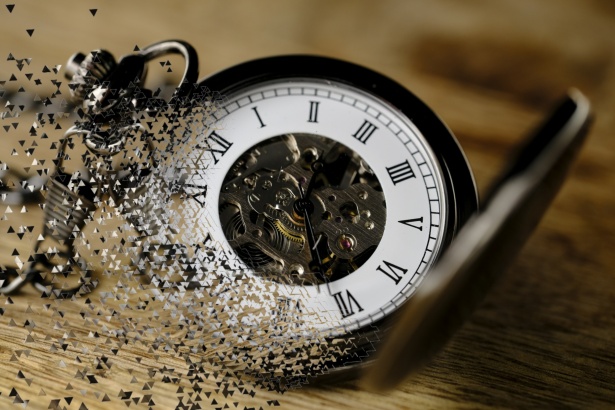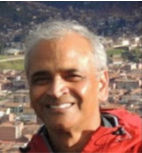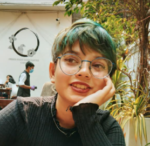Translated from the Bengali by Chirayata Chakraborty

Image used for representation.
3.
Retrograde Amnesia
It was time to leave Tura. I was in love with the city because I had no prior experience of a city and because my memories of life were limited to the past ten years. I had no memories from before the war. My origin, family, home, education, profession—I knew none of these. Even the planes were foreign land to me. A few doctors in Tura, who had done at least some neurological research, called this ‘retrograde amnesia’. They also said that I might suddenly recover my memory someday. They tested my brain, but nothing seemed prominently wrong with it. They asked me to get a scanning done at the capital, thanks to their advanced medical tech and practice. That’s the only way I would be able to tell if I had any injuries. But I didn’t feel too inclined to go, because of what I’d heard about the capital. I didn’t want to move from the peaceful city of Tura, at the foot of the green hills, to the chaos of the capital.
Ten years ago, on the last day of the war, they found me, injured, in a field in the middle of Tura. I spent almost three months in a hospital there, although my wounds were not fatal. The staff thought my injuries were from the war and I was a partisan, so they had nursed me back to health with particular care. I had completely forgotten about it if I were ever really involved in the war. Nobody in Tura knew me. It was as if I had suddenly appeared in a foreign realm. I couldn’t tell you what the people are like, here in Tura, because I have no measurement for humanity. I had nothing to compare it to because I didn’t know any other people from any other land. My skills and education from my past life, though, have remained with me. Regular practice builds a foundation in the human mind. Knowledge gained that way remains in such a part of the brain that it becomes immune to amnesia and external injuries. That’s what the doctors told me. My knowledge of language and math had not been snatched from me. With the help of these possessions, I taught at a school. In the past ten years, I built a life here. I loved the quiet momentum of Tura. I knew nothing of the world outside of this calm. Beside Tura, the Samsing cascaded down the mountains. Under its clear waters, the rocks glistened. A little, undulating, red trail disappeared into the towering forest, across the pretty, nicely furnished cottage.
But I couldn’t forget Prantik and Shefalika, and what they’d told me. The pool of lava, somewhere in the bowels of the earth, an arm of the magma deep beneath our feet. How did no one living in the lowlands know of this bubble of heat that has existed under the Tura mountains for millions and millions of years? But it had been many years since then, and I was on a quest for my lost memories. Maybe the new tech in the capital will make a breakthrough and tear apart the mystery of my brain. Maybe I’ll repossess what I had lost. Or maybe, in the huge, bustling stir of the city, I will come upon something that was only waiting for me to come upon it. Something that will bring those hidden images up to the flame of my memory.
So, one day, from the depths of nature, I came to a stifling, uneasy city. An unpleasant scene, trapped in the coils of disorganized edifices. Nothing about this dirty, decaying place fit the name it was called, the capital. I asked around for specialists who could bring my memories back. I also asked about the lava pool. It wasn’t easy to come across antique objects here either, yet I look around for some old map that would make the mountains of Tura come alive to me, and tell me the location of the pool. People living in the lowlands did not bother with things like this. They went about their day, going to work, not really mapping out their futures. Their ideas about the framework of time were vague.
Finally, I found a neurologist who had a new camera that could capture images of the deepest recesses of the brain. When I met her, she said, “This device uses magnetic resonance imaging. We will put your head inside a strong magnetic field. The hydrogen atoms in your brain will neatly arrange themselves along the north and south poles of this field. You will no longer be you. I always wonder how this field has never erased a patient’s memories.”
Naturally, this information did not make me feel especially encouraged. But her sixty-year-old face, framed by long locks of hair, had such an erudite aura to it that it could restore hopefulness in any patient. The decidedness in her gaze and her chin confounded me. In her chamber, a strange and ancient sensation would grasp me. She was quite curious too the first time we met. She took pictures of my brain and told me, “The hippocampus is a site of much activity. Its damage leads to amnesia. All the parts of your brain look unblemished—the hippocampus, the thalamus, the hypothalamus, the amygdala, the basal ganglia, the cingulate gyrus, and the upper cortex—you should have retained all of your memory. Perhaps some delicate channel has been damaged, which isn’t letting those memories come forward into your consciousness. Why didn’t you come to the capital before?”
I did not have an easy answer to this. A sort of darkness had enveloped my past.
The doctor said, “You’re afraid of your past.”
“How do you know?” Her intuition surprised me.
In reply to this, she asked me another question, “When you think about your past, what do you see?”
Without hesitation, I replied, “A strange darkness and hopelessness.”
“Did you bring the things you told me about?”
I took a dirty piece of paper out of my pocket and placed it on the table. Then I placed my watch beside it.
“When they found you, were these the only two things found on you?”
“No, I had a pistol. The staff took it.”
“What do you think? Were you with the partisans?”
“I remember nothing of that. At first, they took great care of me because they thought I was a partisan. When the political scene changed, that stopped.”
“Did you keep yourself from coming to the capital because of this change?” she asked.
“Maybe. As much as I fear the past, I fear the future more.” I was surprised by my own answer. Never had I admitted to myself that I was afraid of coming to the capital.
The doctor laughed, and then said, “Are you interested, politically or socially?”
“No.”
The doctor got up and stood behind me. Looking at the watch, she said, “What a beautiful watch! My god, what a beautiful thing! We don’t even see watches anymore. There’s no doubt this watch is a product of fine craftsmanship. The second hand almost moves in tandem with the rhythm of the heart. Forgive my poeticism, but the watch’s rosy stone is a real marker of the maker’s creativity. It’s saying, look at me! Have you ever seen such a thing in the lowlands? Magnificent!”
I was amazed by her reaction to the watch.
She said, “Have you been able to find out where the watch was made?”
“No. Every person I’ve shown it to has told me they’ve never seen such a well-made and unique watch. But like you said, doctor, lately how many people in the lowlands really have seen a watch? And how many of them can tell time by looking at the hands? I can. Amnesia did not take that away from me. But the time on this doesn’t match the time in the Lowlands and I haven’t been able to fix that.”
“And what’s written on this?”
I opened the piece of paper very carefully.
“Read it out to me,” the doctor said.
I read the words written on the creases: It’s dark. The path will not end.
“Is this your handwriting?” She stood behind me. I couldn’t see her.
“Yes.”
“Do you remember when you wrote this?”
“No. Oh, there’s something written on the back. That’s not mine,” I said. I turned the paper over and read: I have not forgotten the blue sea, coral enwrapped. Will we ever meet again?
The doctor remained quiet for a long time. I couldn’t see her.
Ultimately, I said, “What do you make of it?”
“Can you remember who wrote this?” she said, and her throat caught how it catches when you’re on the verge of tears.
“No.”
She took a bit of time and then said (still sounding as if she would cry), “Alright, now keep your eyes on the two things and try to center all of your thought on them. Make the watch and the paper the only objects in your line of sight. Try not to think of anything else.”
I set the paper down evenly with the watch. I tried to concentrate on the watch. Following the second hand, I became entranced. Then my eyes fell on the words on the crease: I have not forgotten the blue sea, coral enwrapped. Will we ever meet again? There is a story linked to this. What story, I just could not remember.
“Are you remembering, T., do you see anything?”
Nothing happened at first, and then all at once, I appeared in a dark place.
“It’s dark,” I said.
“Dark?” she inquired.
A sudden light blinded me. I came back to the doctor’s chamber.
“Darkness, and then, sudden, glaring light.”
“Fantastic. And then?”
“Then? Then I didn’t see anything. It ended with the light.”
“Okay, okay. Fantastic, fantastic! We’ve made a lot of progress today. Do you see anything after the light? Empty your mind as much as you can,” the doctor ordered.
When I closed my eyes, I was once again in darkness. I didn’t know how to empty my mind, but after a while, I felt as if I was floating among wispy clouds. That’s when a scene flashed in front of me and then disappeared just as quickly. I walked along a path that seemed to reach a fork. Two paths branched into two opposite directions. After a lot of deliberation, I chose the one on the left. I say path, but I could see nothing but my feet.
When I told the doctor what I saw, she said, “Wow, fantastic! Every step is progress. I am a neuro-investigator. I can tell you that you may not recover your memories magically, but with the help of familiar objects from the past, a lot of people have reclaimed their memory. Now tell me, what was your occupation before you came to the capital?”
“I was a math teacher.”
“Why math? How did you know you had a knack for math?”
“I don’t really know. I always had some numbers mill around in my head.”
“What sort of numbers?”
“Decimals, prime numbers, square roots, numbers that cannot be square rooted, numbers having to do with time. Sometimes it was a long series of numbers, like, say, the value of pi—3.141592653589793238…”
“Alright, alright,” the doctor stopped me.
“I didn’t forget these things.”
“No, amnesia doesn’t affect memories related to skill.”
I told her about math, about the mountains. I told her about the pool of lava.
“There’s someone in this city who can tell you about the lava and the origin of the watch. He is a very interesting person. The people in the lowlands don’t really care anymore,” the doctor soliloquized, “Is there anyone better than him? When it comes to watches?” Then she exclaimed, “I don’t know how much you know about politics. Policy-making is difficult to understand for neuro-investigators like me. You have to gain his trust. I mean, the clockmaker’s. He is known as the clockmaker. Everything that has remained in the lowlands from the past, he is the only one who could know anything of them. He can help you with the lava thing as well. I would suggest that you don’t tell them about the watch just yet. It’s better not to ask him about it until he trusts you.”
The doctor gave me the address of a house that stood in between the old and the new city. She told me to give them a call first, and to name her. The clockmaker does not meet without recommendation.
To be continued…
The above is a continuation of an earlier episode published in our magazine. To read the earlier episode, visit the following link:
Dita’s Watch, the fully translated novel, will soon be available for purchase on our amazon bookstore.
Also, read two Hindi poems by Geet Chaturvedi, translated into English by Moulinath Goswami, and published in The Antonym:
Follow The Antonym’s Facebook page and Instagram account for more content and exciting updates.



























0 Comments